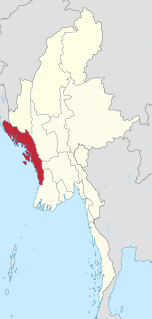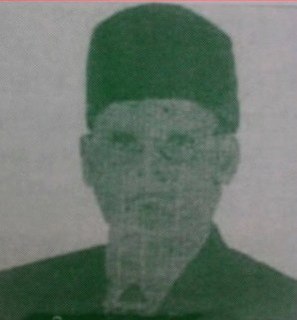
The politics of Trinidad and Tobago function within the framework of a unitary state regulated by a parliamentary democracy modelled on that of Great Britain and Northern Ireland, from which the country gained its independence in 1962. Under the 1976 republican Constitution, the British monarch was replaced as head of state by a President chosen by an electoral college composed of the members of the bicameral Parliament, consisting of the Senate and the House of Representatives.

Purno Agitok Sangma was an Indian politician who served as the Speaker of the Lok Sabha from 1996 to 1998 and Chief Minister of Meghalaya from 1988 to 1990.

The Parliament of India is the supreme legislative body of the Republic of India. It is a bicameral legislature composed of the President of India and the two houses: the Rajya Sabha and the Lok Sabha. The President in his role as head of legislature has full powers to summon and prorogue either house of Parliament or to dissolve Lok Sabha. The president can exercise these powers only upon the advice of the Prime Minister and his Union Council of Ministers.

The Jatiya Sangsad, often referred to simply as the Sangsad or JS and also known as the House of the Nation, is the supreme legislative body of Bangladesh. The current parliament of Bangladesh contains 350 seats, including 50 seats reserved for women, which are apportioned on elected party position in the parliament. Elected occupants are called members of parliament or MPs. The 11th National Parliamentary Election was held on 30 December 2018. Elections are held every five years unless the parliament is dissolved before that time.
Kotla Vijaya Bhaskara Reddy was the chief minister of the Indian state of Andhra Pradesh on two occasions, in 1983 and then from 1992 to 1994. Reddy was a member of the Indian National Congress. He was elected to the Lok Sabha six times in 1977, 1984, 1989, 1991, 1996 and 1998. He was a Union cabinet Minister as well as member of several parliamentary committees. He lost the 1999 elections and subsequently retired from active politics.

The Rohingya people are a stateless Indo-Aryan ethnic group who reside in Rakhine State, Myanmar. There were an estimated 1 million Rohingya living in Myanmar before the 2016–17 crisis. By December 2017, an estimated 625,000 refugees from Rakhine, Myanmar, had crossed the border into Bangladesh since August 2017. The majority are Muslim while a minority are Hindu. Described by the United Nations in 2013 as one of the most persecuted minorities in the world, the Rohingya population is denied citizenship under the 1982 Myanmar nationality law. According to Human Rights Watch, the 1982 laws "effectively deny to the Rohingya the possibility of acquiring a nationality". Although Rohingya history in the region can be traced back to the 8th century, Myanmar law does not recognize the ethnic minority as one of the eight "national indigenous races". They are also restricted from freedom of movement, state education and civil service jobs. The legal conditions faced by the Rohingya in Myanmar have been widely compared to apartheid by many international academics, analysts and political figures, including Nobel laureate Bishop Desmond Tutu, a South African anti-apartheid activist.

Raffaele Costa is an Italian politician. He was the President of the Province of Cuneo from June 2004 to June 2009. He was previously a member of the Italian Chamber of Deputies representing the Italian Liberal Party and later Forza Italia between 1976 and 2003 and was also a Member of the European Parliament of the European People's Party until June 2004.

Marit Nybakk is a Norwegian politician for the Labour Party, a former First Vice-President of the Norwegian Parliament, the Storting, and a former President of the Nordic Council. From 2016 to 2018 she was President of the Norwegian Association for Women's Rights, the preeminent women's and girls' rights organisation in Norway.
Alfredo Mantica is an Italian politician. He is a member of the National Alliance party (PdL). He became Under-Secretary for Foreign Affairs in the cabinet of Silvio Berlusconi on May 12, 2008.

The Arakan League for Democracy is a political party active in Rakhine State, Myanmar (Burma).

The Communist Party (Burma), sometimes referred to as the Red Flag Communist Party, was a communist party in Burma. The party was formed after a more radical faction broke away from the Communist Party of Burma in 1946. In the same year, it began a protracted armed insurgency; first against British rule, then against the Burmese government. The party was led by Thakin Soe, a firebrand communist leader. In the mid to late 1970s, the party lost influence and was militarily defeated after the capture of Thakin Soe in 1978.

The Assembly of the Union is the national-level bicameral legislature of Myanmar established by the 2008 National Constitution. The Pyidaungsu Hluttaw is made up of two houses, the Amyotha Hluttaw, a 224-seat upper house as well as the Pyithu Hluttaw, a 440-seat lower house.
Thakin Kyaw Tun, or Thakin Kyaw Dun was a Burmese politician.
Sultan Mahmud was a politician from Arakan, Burma. In the British Raj, Mahmud served as cabinet secretary in the Central Legislative Assembly. After Burmese independence, he was elected to the Parliament of Burma through a by election from Buthidaung in 1957. He was re-elected in 1960. He served as Minister of Health of the Union of Burma from 1960 till the 1962 Burmese coup d'état.
Fazal Ahmed is a Rohingya lawyer and former politician in Myanmar. He was a leader of the National Democratic Party for Human Rights (NDPHR). He was elected as Parliament of Myanmar MP during the Burmese general election, 1990.

Arakan Division was an administrative division of the British Empire, covering modern-day Rakhine State, Myanmar, which was the historical region of Arakan. It bordered the Bengal Presidency of British India to the north. The Bay of Bengal was located on its western coastline. Arakan Division had a multiethnic population. It was a leading rice exporter.

The Mayu Frontier District was a short-lived administrative zone of Burma which existed between 1961 and 1964. It covered the Maungdaw District of present-day Rakhine State in the historical region of Arakan. The zone was administered directly from the capital Rangoon.
Kyaw Kyaw Win is a Burmese politician and lawyer who currently serves as a House of Nationalities member of parliament for Rakhine State No. 8 constituency. He is a member of the Arakan National Party.
Htoot May is a Burmese politician and currently serves as an Amyotha Hluttaw MP for Rakhine State No. 11 Constituency. She is a member of Arakan National Party.

















